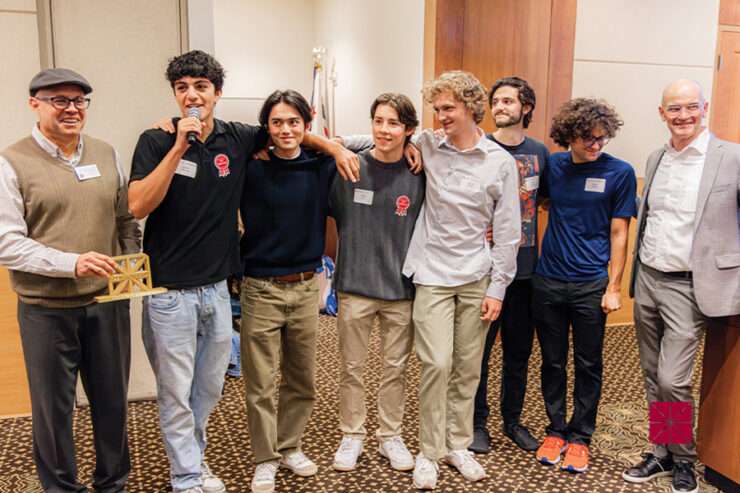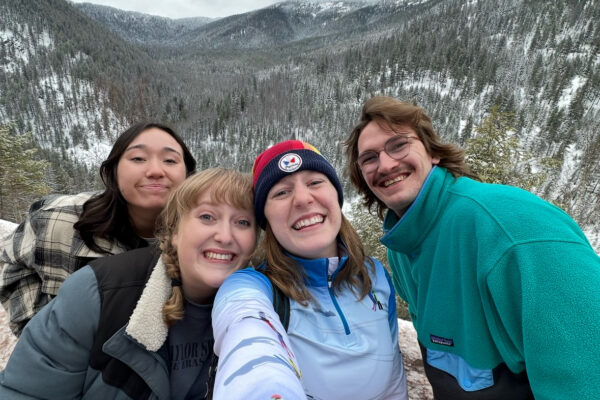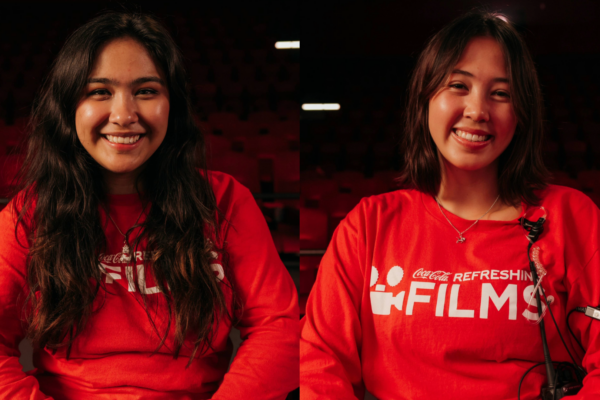During the early days of the COVID-19 pandemic, medical professionals stressed the importance of hand washing to combat the spread of the deadly virus.
Popular online videos revealed, to all our dismay, that many people don’t sufficiently wash their hands, and some may forgo the entire process.
Luckily, Chapman students are taking on this problem to minimize the spread of infectious diseases. Miles Duncan, Maxwell Richter, Andrew Bahsoun, Landon Kauer, Ronan Mcdermott and Max Randall developed a device that tracks hand movements and uses artificial intelligence to ensure that people are following the proper method of hand washing as defined by the World Health Organization (WHO).
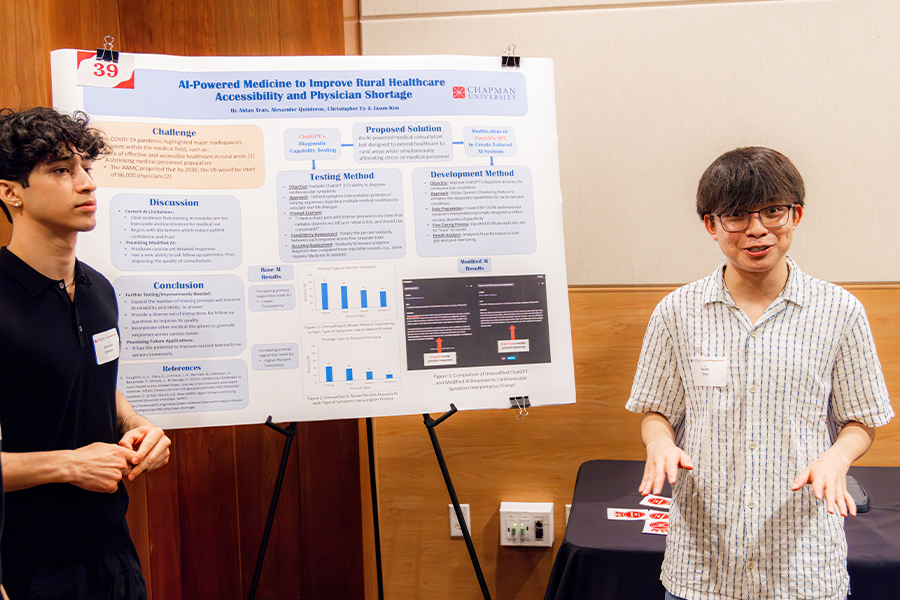
The team of students, who are all part of the class of 2026, recently presented their invention on May 10 at the Grand Challenges Initiative Showcase, which is organized by Fowler School of Engineering and Schmid College of Science and Technology. For two years leading up to the event, small teams of four to six students and a research mentor worked to design a solution to a significant world problem. All incoming Fowler and Schmid students take part in the program.
This year, students took on challenges within the categories of DEI and accessibility, environmental science, health and wellness and technology and education. While there were winners and runner-ups for each category, the AI Hand Washing Coach claimed the top prize of $500.
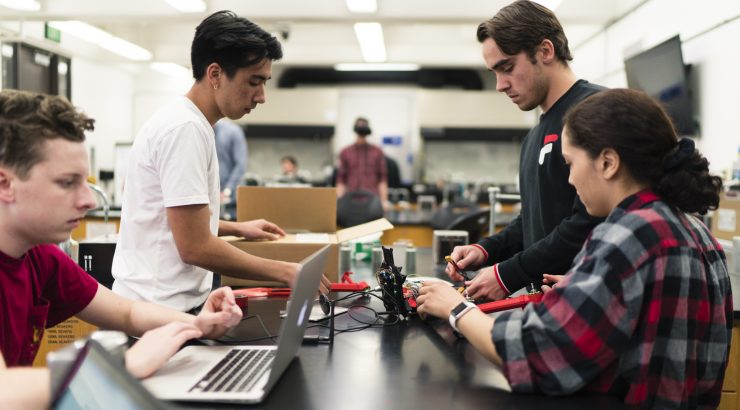
The device, located directly above a sink, works by tracking hand movements with computer vision. Then, a machine learning model that was trained by the students to recognize the WHO’s hand washing techniques will track and confirm the completion of each step. The project was sponsored by Layerjot, which builds AI-powered tools for the health care industry.
“Hand washing compliance is a problem in health care facilities and the food industry,” said Andrew Bahsoun during a presentation at the event. “We want to increase compliance and we think this tool can do it.”
Here are the rest of the runner-ups and winners in each category:
DEI and Accessibility
Winner: Addressing Disparities in Urban Green Space Accessibility
By: Jack Bruneel, Sean McCallum and Yuri Suh
Runner-up: SignBuddy
By: Gustas Mitkus, Ellie Nguyen and Elle Sanchez
Environmental Science
Winner: Zeolite Filtration of Stormwater Runoff
By: Ari Dedeoglu, Lillian Holmbery,Colin Jackson, Jaden Towey and Kassidy Villavazo
Runner-up: Making Composting More Appealing
By: Alexander Cannizzaro, Katie Chi, Holly Sundquist and Sasha Zagorski
Health and Wellness
Winner: AI-Powered Medicine for Improving Healthcare Accessibility and Physician Shortage
By: Jason Kim, Alexander Quinteros, Aidan Tran and Christopher Uy
Runner-up: Optimizing Anemia Fingernail Imaging Conditions
By: Neal Aicinena, Alexis Anderson, Grace Holick and Laila Makrom
Technology and Education
Winner: SPARC: A STEM Education App
By: Halle Broadnax, Connor Jacobs, Molly Niswender, Keira Ryan, Davis Wood and Gideon Zogbaum
Runner-up: The Stem Cell Debate: An Educational Game
By: Carlos Alderete, Martha Dempkey, Amanda Janis and Kaitlyn Pachura
